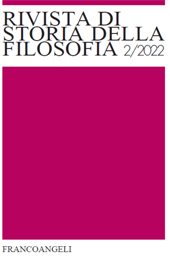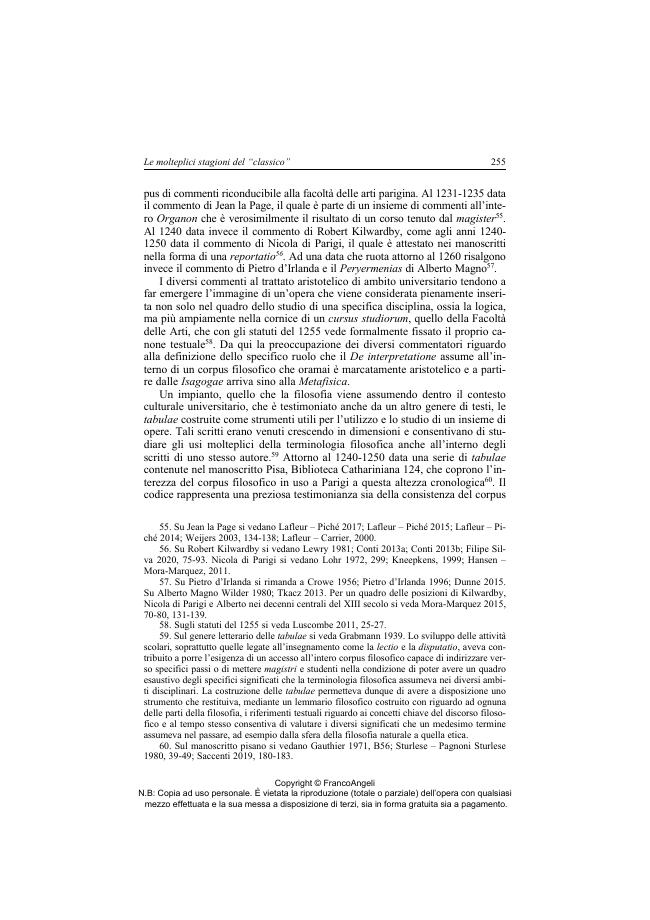Le molteplici stagioni del classico : manoscritti e contenuti del De Interpretatione fra Boezio e Tommaso d'Aquino
P. 238-272
The reception of Aristotle's De interpretatione in the Latin-speaking world occurred through the crucial medium of Boethius' translation and commentaries. The heritage of this Boethian legacy certainly represents a fil rouge in the history of philosophy from late antiquity to the scholastic period, but it was not univocal in its form. In the early middle ages, De interpretatione was considered mainly in the light of Boethius' first commentary together with other texts from the Roman tradition, such as the writings of Apuleius and Martianus Capella. It was with the growth of scholastic culture in the eleventh century that Boethius' second commentary became a crucial text for exegesis of the contents of the Aristotelian treatise. In a certain sense, from this moment up to the mid-thirteenth century, the different readings of Aristotle's De interpretatione all bear witness to what Chenu called the "Boethian age".
The framework started to change radically around 1270 with the circulation of the Latin translation of Ammonius' commentary, which Aquinas first used in his Expositio on the Aristotelian text. This latter contribution reconstructs the series of historical turning-points in the reception of De interpretatione through Boethius and beyond in Latin-speaking philosophical discourse from late antiquity to the mid-thirteenth century via the acquisitions of scholarly research and the varied manuscript tradition. [Publisher's text]
Forma parte de
Rivista di storia della filosofia : LXXVII, 2, 2022-
Artículos del mismo número (disponibles individualmente)
-
Información
Código DOI: 10.3280/SF2022-002004
ISSN: 1972-5558
MATERIAS
KEYWORDS
- De interpretatione, Boethius, Latin translation, Logica Vetus, Logica Nova



